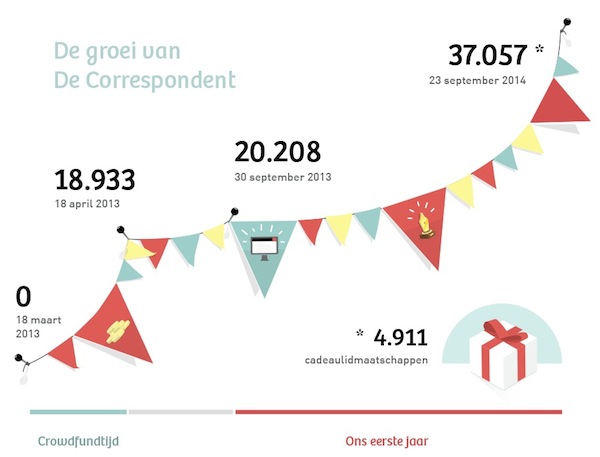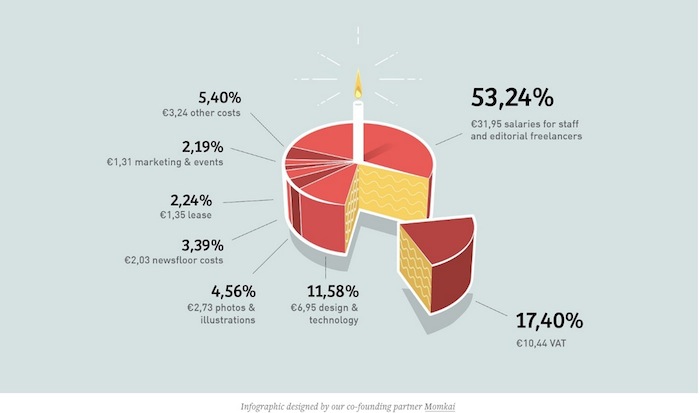A subscription to De Correspondent costs €60 ($76) annually, and Pfauth wrote that about 60 percent of the site’s original 18,933 funders have already renewed their subscriptions. As of Sept. 23, De Correspondent had 37,057 members — multiply that by the €60 cost of a membership and you get €2.2 million ($2.77 million). It says it’s received 4.5 million unique visitors in its first year. (Including two from North Korea!)

To try and incentivize members to renew their subscriptions, De Correspondent put together two reports detailing the site’s finances and also the impact of its journalism in the past year. (They’re both in Dutch.)

About 53 percent of every €60 membership was spent on salaries for De Correspondent’s 15 full-time staffers and its network of freelancers. The next largest expenditure: taxes, accounting for 17.4 percent of its costs.
The level of detail De Correspondent provides its members in explaining how it spends their money and the projects it undertakes — one of the site’s journalists, for example, wrote a book that originated with stories written for the site and that De Correspondent published — is part of its philosophy for what a crowdfunded news organization should look like. Pfauth summarized that philosophy on Medium:
1. Explain how you spend your members’ money;
2. Encourage journalists to work together with members;
3. Your members are your best ambassadors;
4. Reach out to people who already like you;
5. Think beyond your platform when it comes to publishing your stories.
Leave a comment